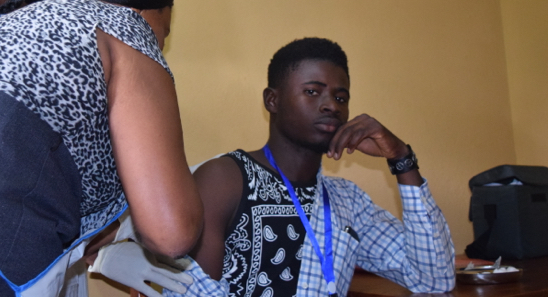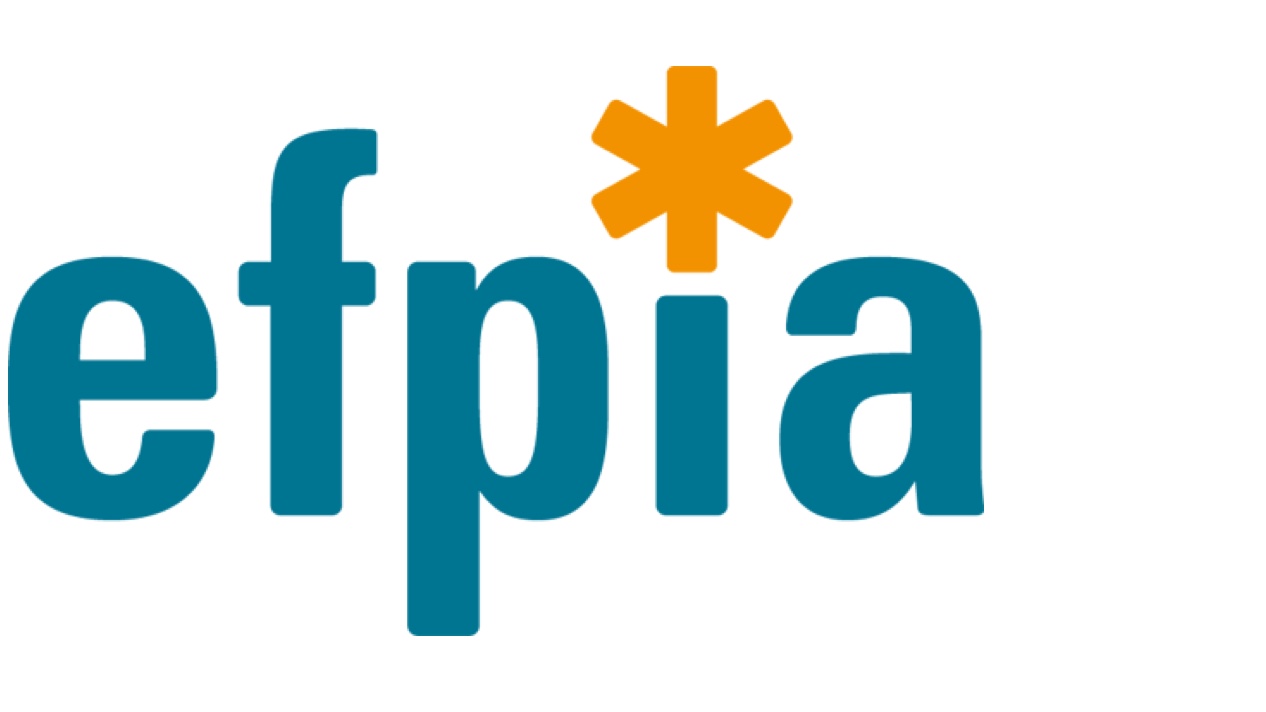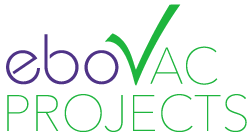CLINICAL TRIAL FOR NEW EBOLA VACCINE STARTS IN KAMBIA DISTRICT, SIERRA LEONE
9 October, 2015
‘EBOVAC-Salone’, a clinical trial to assess the safety and immunogenicity of a new vaccine against Ebola, has started with the vaccination of the first volunteers. The first volunteers to be vaccinated come from Kambia Town, and more volunteers from Kambia District will be enrolled in the study in stages over the course of the next few months.
This two-dose vaccine regimen – known as a ‘prime-boost’ vaccine regimen – being studied in EBOVAC-Salone is different to the vaccines currently being tested in other clinical trials in the region. The vaccines being studied are Ad26.ZEBOV and MVA-BN-Filo, and they were developed by Crucell Holland B.V., one of the Janssen Pharmaceutical Companies, and Bavarian Nordic. These vaccines do not contain Ebola and it is not possible to become infected with Ebola by receiving them.
Volunteers in the study are first given the ‘prime’ dose to prepare the immune system to defend itself against the virus if it comes into contact with Ebola. Two months later volunteers receive the ‘boost’ dose in order to increase the immune response, with the goal of potentially strengthening and optimizing the duration of the immunity to the Ebola virus. This ‘prime-boost’ approach is already used in many routine immunizations around the world, including the polio immunization given in Sierra Leone.
The EBOVAC-Salone study, which is being run by a team of doctors and scientists led by Dr Bailah Leigh, Head of the Department of Community Health at the College of Medicine and Allied Health Sciences (COMAHS), brings together several leading global research institutions and non-government organizations including the Ministry of Health and Sanitation, COMAHS, Janssen Pharmaceutical Companies of Johnson & Johnson, London School of Hygiene & Tropical Medicine, Inserm, World Vision, Grameen Foundation and GOAL. These partners are working with support from the European Union’s Innovative Medicines Initiative Ebola+ programme.
“Ebola has devastated lives and communities across Sierra Leone and our neighbouring countries. Now that the epidemic is waning we must focus our efforts on preventing this happening ever again. Developing successful vaccines against this terrible disease is crucial if we are to fight Ebola in the future – and that is why we are doing the EBOVAC-Salone study, “ said Dr Bailah Leigh, Principal Investigator for EBOVAC-Salone who was speaking on the day of the first vaccination. “I am proud to be leading a team of Sierra Leonean doctors and nurses, working in partnership with our international colleagues, to study this new vaccine regimen against Ebola. I hope that our work on this EBOVAC-Salone study will help to save lives both here in Sierra Leone and beyond.”
The vaccine regimen, which is currently being tested in clinical studies in the United States, the United Kingdom, Kenya, Uganda and Tanzania, has already been given to several hundred people to date with no serious adverse events reported.
Studies are also planned for other European and African countries, but it is important that the vaccine is now studied in Sierra Leone so that the EBOVAC-Salone team can gather as much information as possible about how the vaccine works in people living in an area affected by Ebola.
Developing effective vaccines against Ebola is a global public health priority. To date, there is no licensed vaccine, treatment or cure for the Ebola virus, so new ways to stop people becoming infected with Ebola are urgently needed. It is crucial to study a number of different vaccines in different populations and circumstances so that there is more than one tested and licensed vaccine available to prevent against future outbreaks of the Ebola virus.
Significant investment has been made to build new facilities in Kambia to conduct the study which will contribute substantially to the strengthening of the local health system. These include establishing the first Emergency Room at the Kambia District Hospital, and building a new vaccine storage facility on the hospital site. These efforts are complemented with the employment and training of doctors, nurses and other frontline healthcare workers who will gain valuable experience while contributing to the clinical study.




